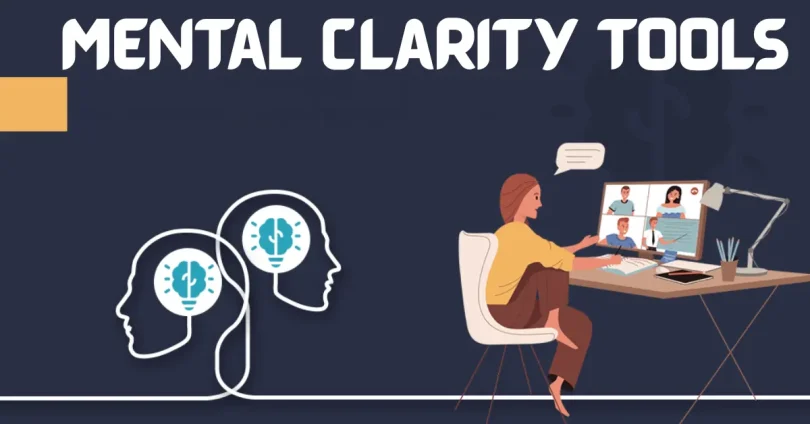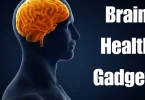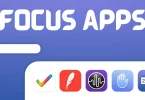Mental clarity is a state of mind in which an individual is able to think clearly, make better decisions, and stay focused on tasks without feeling overwhelmed. Achieving mental clarity can significantly boost productivity, reduce stress, and improve overall well-being. In today’s fast-paced world, maintaining mental clarity is more important than ever, and fortunately, there are numerous tools available to help you achieve this.
This guide will explore different mental clarity tools that can help you enhance your focus, improve decision-making, and ultimately lead a more productive life.
1. Meditation and Mindfulness Practices
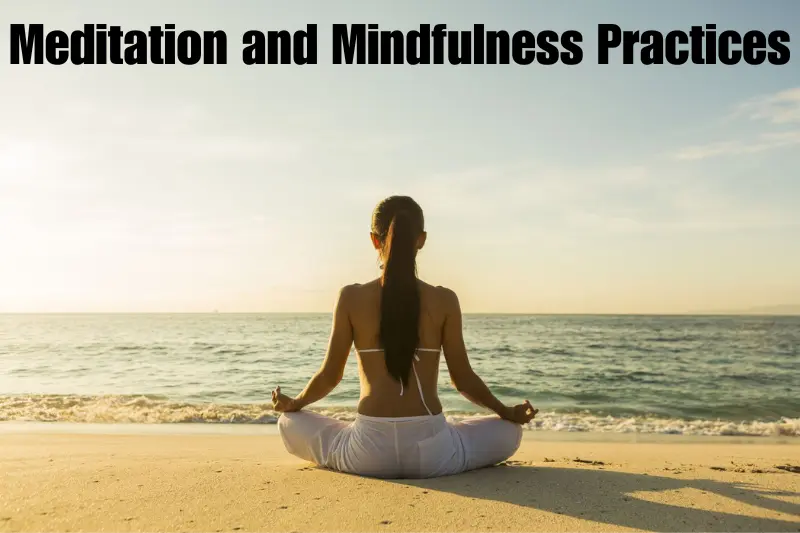
One of the most effective tools for achieving mental clarity is meditation. Meditation involves training the mind to focus, calm down, and declutter mental noise. It’s a proven technique for reducing stress and anxiety, promoting emotional well-being, and improving concentration.
Types of Meditation:
- Mindfulness Meditation: This practice involves paying attention to the present moment without judgment. It encourages awareness of thoughts, feelings, and bodily sensations.
- Transcendental Meditation (TM): A simple technique that uses a mantra to help the mind reach a calm state.
- Guided Meditation: A practice led by a teacher or an app that helps you focus on breathing, relaxation, and clearing mental clutter.
Tools for Meditation:
- Apps: Popular apps like Headspace, Calm, and Insight Timer offer guided meditations and mindfulness exercises to help you develop mental clarity.
- Wearables: Devices like Muse use EEG sensors to measure brain activity, guiding you to focus and meditate more effectively.
You may also like to read this:
Powerful Strength And Performance Tools For Success
Body Optimization Tech For Better Health In 2025
Best Focus Apps For Better Time Management In 2025
2025’s Best Brain Health Gadgets For Productivity & Focus
Mindfulness Technology: Top Digital Tools For A Calmer Life
Powerful Productivity Tech To Enhance Efficiency In 2025
2. Journaling and Brain Dumping
Writing can be a powerful tool for organizing your thoughts and clearing mental clutter. Journaling allows you to express thoughts, ideas, and emotions, which can help declutter your mind and make room for better decision-making.
Brain Dumping:
A brain dump involves writing down everything on your mind without worrying about structure. This practice helps release mental fog, enabling you to prioritize tasks, manage stress, and approach challenges more clearly.
Tools for Journaling:
- Bullet Journals: A popular method for organizing thoughts, tasks, and goals.
- Digital Journals: Apps like Evernote, Notion, and Day One help you digitally organize your thoughts and track your emotional well-being.
- Morning Pages: A journaling technique where you write three pages of stream-of-consciousness thoughts first thing in the morning. This helps clear mental clutter and set a positive tone for the day.
3. Breathing Exercises and Techniques
Deep breathing exercises are an easy and effective way to calm your nervous system, reduce stress, and clear your mind. By controlling your breath, you can activate your parasympathetic nervous system, which induces relaxation and mental clarity.
Popular Breathing Exercises:
- Box Breathing: Inhale for four seconds, hold for four seconds, exhale for four seconds, and hold again for four seconds. This technique helps reduce anxiety and sharpen focus.
- 4-7-8 Breathing: Inhale for 4 seconds, hold for 7 seconds, exhale for 8 seconds. This exercise reduces stress and increases mental clarity.
- Alternate Nostril Breathing: This exercise, popular in yoga, involves inhaling and exhaling through one nostril at a time to balance the body and calm the mind.
Tools for Breathing:
- Apps: Apps like Breathwrk and Breethe offer guided breathing exercises and relaxation techniques to help you focus and reduce anxiety.
- Wearables: Devices like Spire monitor your breath and help you maintain calm, clarity, and focus throughout the day.
4. Visualization and Mental Rehearsal
Visualization is the process of imagining positive outcomes, scenarios, or goals. It helps boost confidence, reduce anxiety, and improve focus by training the mind to visualize success and clarity.
How Visualization Helps:
- Stress Reduction: Visualizing positive outcomes can reduce anxiety and foster a sense of calm.
- Focus Improvement: Visualizing your tasks and goals allows you to mentally rehearse actions and build focus.
Tools for Visualization:
- Visualization Apps: Apps like Mind Movies allow you to create mental vision boards that support goal-setting and focus.
- Guided Visualization: Available through apps like Calm or Headspace, these guided sessions can help you tap into a clearer state of mind.
5. Productivity Tools and Task Management
Effective task management and organization tools help you prioritize tasks, break large projects into smaller steps, and avoid mental overwhelm. These tools help clear your mind by allowing you to focus on one task at a time rather than juggling multiple competing responsibilities.
Popular Productivity Tools:
- To-Do Lists: Simple, but powerful. Tools like Todoist, Microsoft To-Do, and Google Keep help you organize and prioritize your daily tasks.
- Time-Blocking: Time-blocking is a productivity strategy where you allocate specific time blocks for specific tasks. Tools like Trello, Notion, and ClickUp help you create structured schedules and project timelines.
- Pomodoro Technique: This time management method involves working in focused intervals (typically 25 minutes), followed by a short break. Apps like Be Focused and Focus Booster help you implement this technique to maintain focus and avoid burnout.
6. Nutrition and Supplements for Brain Health
Proper nutrition plays a critical role in mental clarity. A balanced diet, rich in essential nutrients, provides the brain with the necessary fuel to function optimally.
Brain-Boosting Foods:
- Omega-3 Fatty Acids: Found in fatty fish like salmon, walnuts, and flaxseeds, these fats are essential for brain health.
- Antioxidants: Blueberries, dark chocolate, and green tea are rich in antioxidants that help protect the brain from oxidative stress.
- Complex Carbohydrates: Whole grains, sweet potatoes, and legumes provide a steady source of energy for the brain.
Supplements for Mental Clarity:
- Caffeine: A small dose of caffeine (found in coffee or green tea) can improve focus and alertness.
- Ginkgo Biloba: Known for improving cognitive function, Ginkgo Biloba supplements may help improve mental clarity and memory.
- Bacopa Monnieri: An herbal supplement used in Ayurvedic medicine, Bacopa is known to enhance memory and cognitive function.
Tools for Tracking Nutrition and Supplements:
- MyFitnessPal: A popular app for tracking food intake and maintaining a balanced diet.
- Noom: An app focused on health coaching that helps you make mindful nutrition choices to support mental clarity.
7. Exercise and Physical Activity
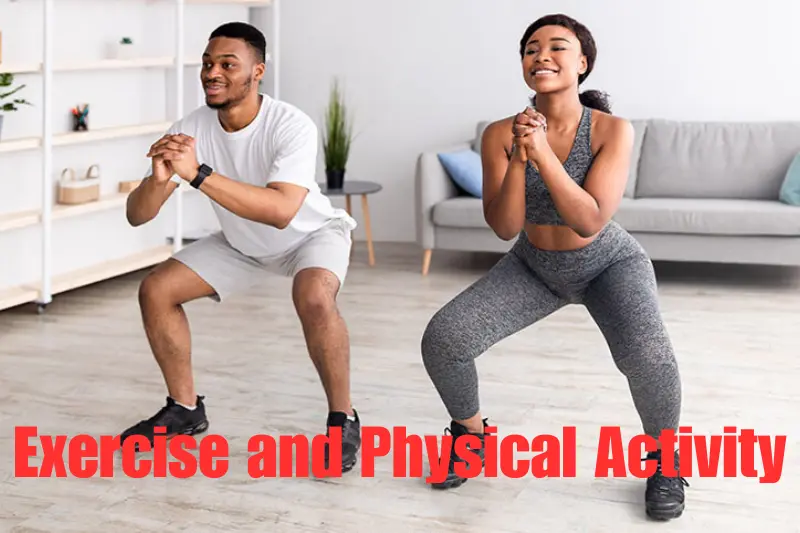
Physical exercise is another essential tool for achieving mental clarity. Exercise boosts the production of endorphins, reduces stress, and promotes overall brain health. Regular physical activity helps increase blood flow to the brain, improving focus, memory, and cognitive function.
Types of Exercise for Mental Clarity:
- Aerobic Exercise: Activities like running, cycling, or swimming increase blood flow to the brain and enhance cognitive performance.
- Strength Training: Lifting weights or engaging in bodyweight exercises helps improve mental focus and concentration.
- Yoga: Combining movement, breath control, and meditation, yoga helps to calm the mind and improve mental clarity.
Tools for Exercise:
- Fitness Apps: Apps like MyFitnessPal, Nike Training Club, and Strava track your physical activity and progress to support your mental clarity goals.
- Wearables: Devices like Fitbit and Apple Watch track your workouts, heart rate, and sleep, helping you maintain an active lifestyle that promotes mental clarity.
8. Sleep Optimization Tools
Getting quality sleep is crucial for maintaining mental clarity. Poor sleep leads to brain fog, reduced focus, and difficulty processing information.
Tips for Better Sleep:
- Set a Routine: Going to bed and waking up at the same time every day helps regulate your circadian rhythm.
- Limit Blue Light Exposure: Avoid screens before bedtime to improve sleep quality.
- Create a Relaxing Environment: Keep your bedroom cool, dark, and quiet to create an ideal sleep environment.
Tools for Sleep Optimization:
- Sleep Tracking Devices: Wearables like the Oura Ring and Fitbit monitor your sleep patterns, providing insights to improve sleep quality.
- Sleep Apps: Apps like Sleep Cycle and Pillow track your sleep stages and offer suggestions for improving your rest.
9. Environmental Factors: Declutter Your Space
Your physical environment plays a significant role in shaping your mental clarity. A cluttered or disorganized space can cause distractions and contribute to feelings of overwhelm. On the other hand, an organized, clean, and calming environment can help improve focus and mental well-being.
Steps to Declutter Your Environment:
- Clear Your Workspace: Keep only the essentials on your desk. Remove unnecessary items that create visual distractions.
- Organize Digital Spaces: Tidy up your desktop, organize your emails, and streamline your digital files. Apps like Trello, Evernote, and Google Drive can help you maintain digital order.
- Create Zones: Dedicate specific areas in your home or office for work, relaxation, and socializing. This helps create mental boundaries that improve focus and reduce stress.
Tools for Organizing Your Environment:
- Productivity Apps: Tools like Notion, Todoist, and Asana help you manage tasks and projects efficiently, reducing digital clutter.
- Physical Organization Tools: Consider using filing cabinets, drawer organizers, or storage bins to keep your space tidy and free from unnecessary distractions.
10. Cognitive Behavioral Tools
Cognitive Behavioral Therapy (CBT) tools help identify negative thought patterns and replace them with healthier, more productive ways of thinking. These tools can improve mental clarity by breaking down mental barriers that hinder focus and decision-making.
Key CBT Techniques for Mental Clarity:
- Cognitive Restructuring: This involves identifying distorted or negative thoughts and replacing them with more rational, positive alternatives. By shifting your mindset, you can reduce mental clutter and make clearer decisions.
- Thought Records: Keeping a thought record helps you track your thoughts and emotions, identify patterns, and challenge unproductive thought patterns that create mental fog.
- Behavioral Activation: This technique involves engaging in activities that promote positive emotions and mental clarity. For instance, engaging in enjoyable activities can combat feelings of stress and anxiety.
Tools for CBT:
- CBT Apps: Apps like Woebot and BetterHelp provide accessible resources and therapy options for practicing CBT techniques on the go.
- Workbooks and Journals: Guided workbooks like The Feeling Good Handbook by Dr. David Burns can help you apply CBT principles and improve mental clarity.
11. Nature and Outdoor Activities
Spending time in nature is a simple but highly effective way to restore mental clarity. Nature has a calming effect on the mind and helps reduce stress, improve mood, and enhance cognitive function.
Benefits of Nature for Mental Clarity:
- Reduced Mental Fatigue: Spending time outdoors can help combat mental fatigue and increase alertness.
- Stress Reduction: Exposure to natural environments lowers cortisol levels and promotes relaxation.
- Boosted Creativity and Problem-Solving: Nature has been shown to enhance creative thinking and problem-solving abilities, which are crucial for maintaining clarity in decision-making.
Ways to Incorporate Nature into Your Routine:
- Take Walks: A daily walk in a park or nature reserve can help clear your mind and restore focus.
- Gardening or Outdoor Hobbies: Engaging with nature through hobbies like gardening or outdoor sports can provide mental clarity while promoting physical health.
- Nature Retreats: Plan regular escapes to natural settings, whether it’s a weekend hike or a vacation to the countryside, to reset your mind.
Tools for Nature Connection:
- Outdoor Apps: Apps like AllTrails and Komoot can help you discover nearby trails, parks, and natural retreats for outdoor activities.
- Biofeedback Devices: Devices like NatureSound+ can simulate calming nature sounds and help you relax during work or study sessions.
12. Creative Expression for Mental Clarity
Engaging in creative activities can help clear your mind and improve mental clarity. Whether it’s through art, music, writing, or other forms of expression, creativity provides a healthy outlet for emotions and fosters mental relaxation.
Creative Activities That Promote Clarity:
- Art and Drawing: Sketching, painting, or doodling can serve as a form of mindfulness and self-expression, clearing your mind and reducing stress.
- Music and Sound: Listening to music or playing an instrument can evoke positive emotions and enhance focus. Some people find that certain types of music, such as classical or ambient music, help with concentration.
- Creative Writing: Writing stories, poems, or journaling creatively can provide mental clarity by helping you express feelings and thoughts that may otherwise be suppressed.
Tools for Creative Expression:
- Art Apps: Procreate for digital drawing or Adobe Fresco provide creative outlets to draw and create art on the go.
- Music Apps: Apps like Spotify or Calm offer curated playlists for relaxation, focus, and creativity.
- Writing Platforms: Apps like Scrivener, Evernote, or Grammarly help you organize and enhance your creative writing efforts.
13. Social Connection and Support
Sometimes, the key to mental clarity lies in building supportive social networks. Positive relationships and social interactions can provide emotional clarity, reduce stress, and help you reframe challenges in a productive light.
How Social Connection Helps:
- Emotional Support: Engaging with friends, family, or colleagues can offer reassurance and help clear mental fog caused by emotional stress.
- Increased Perspective: Talking through problems with others provides fresh perspectives, helping you see situations more clearly and make informed decisions.
- Accountability: Social connections can offer the accountability needed to stay on track with goals, helping you maintain focus and clarity.
Tools for Social Connection:
- Social Media Platforms: Apps like Facebook, Instagram, and LinkedIn can help you stay connected with people who offer support, inspiration, and shared experiences.
- Community Forums and Groups: Joining online or offline groups related to your interests or professional goals can foster a sense of belonging and mental clarity.
14. Consistent Routine and Time Management
Maintaining a structured daily routine is essential for mental clarity. A predictable routine reduces cognitive overload, provides a sense of control, and creates space for focused, productive work.
Key Elements of a Mental Clarity Routine:
- Set Priorities: Identify your most important tasks each day, and focus on completing them first. This ensures that your mental energy is directed toward what matters most.
- Breaks and Downtime: Regular breaks, particularly those that involve movement or relaxation, can help prevent burnout and maintain mental clarity.
- Reflection: At the end of each day, take a moment to reflect on what you accomplished and plan for the next day. This helps create a clear sense of progress and focus.
Tools for Routine and Time Management:
- Calendar Apps: Use Google Calendar or Apple Calendar to plan and schedule your tasks, ensuring you stay on top of your day.
- Time Management Tools: Apps like Toggl and RescueTime help you track time spent on various activities, offering insights into your productivity and areas for improvement.
- Habit-Tracking Apps: Habitica and Streaks allow you to track and maintain consistent habits that support your mental clarity routine.
Conclusion
Achieving mental clarity is essential for improving focus, decision-making, and overall productivity. By incorporating a variety of tools and practices into your daily routine, you can enhance your ability to stay clear-minded and tackle challenges with confidence. Whether it’s through mindfulness, exercise, proper nutrition, or structured productivity tools, each method plays a crucial role in decluttering your mind and fostering mental well-being. The key is to find a combination of techniques that work best for you and make them a consistent part of your lifestyle.
With the right mental clarity tools at your disposal—whether it’s meditation apps, cognitive behavioral techniques, or time management systems—you can sharpen your mental clarity, reduce stress, and optimize your daily performance. Start small, be consistent, and over time, you’ll notice a significant improvement in your mental clarity, allowing you to lead a more focused, productive, and balanced life.
FAQs
Q1. What are mental clarity tools?
Mental clarity tools are practices, techniques, and devices that help clear mental clutter, improve focus, and enhance decision-making. These tools include meditation, journaling, breathing exercises, productivity apps, and more.
Q2. How can meditation improve mental clarity?
Meditation helps calm the mind, reduce stress, and increase concentration. By practicing mindfulness or other forms of meditation, you can declutter your thoughts, leading to better decision-making and clearer thinking.
Q3. What is a brain dump, and how does it help with mental clarity?
A brain dump involves writing down everything on your mind, allowing you to release mental clutter. This process helps organize thoughts, reduce overwhelm, and prioritize tasks for better mental clarity.
Q4. Can breathing exercises really improve focus and clarity?
Yes, breathing exercises like box breathing, 4-7-8 breathing, and alternate nostril breathing can reduce stress, calm the nervous system, and improve focus, leading to greater mental clarity.
Q5. How does exercise impact mental clarity?
Physical exercise boosts the production of endorphins, improves blood flow to the brain, and reduces stress. Regular exercise enhances cognitive function, memory, and focus, all contributing to better mental clarity.

